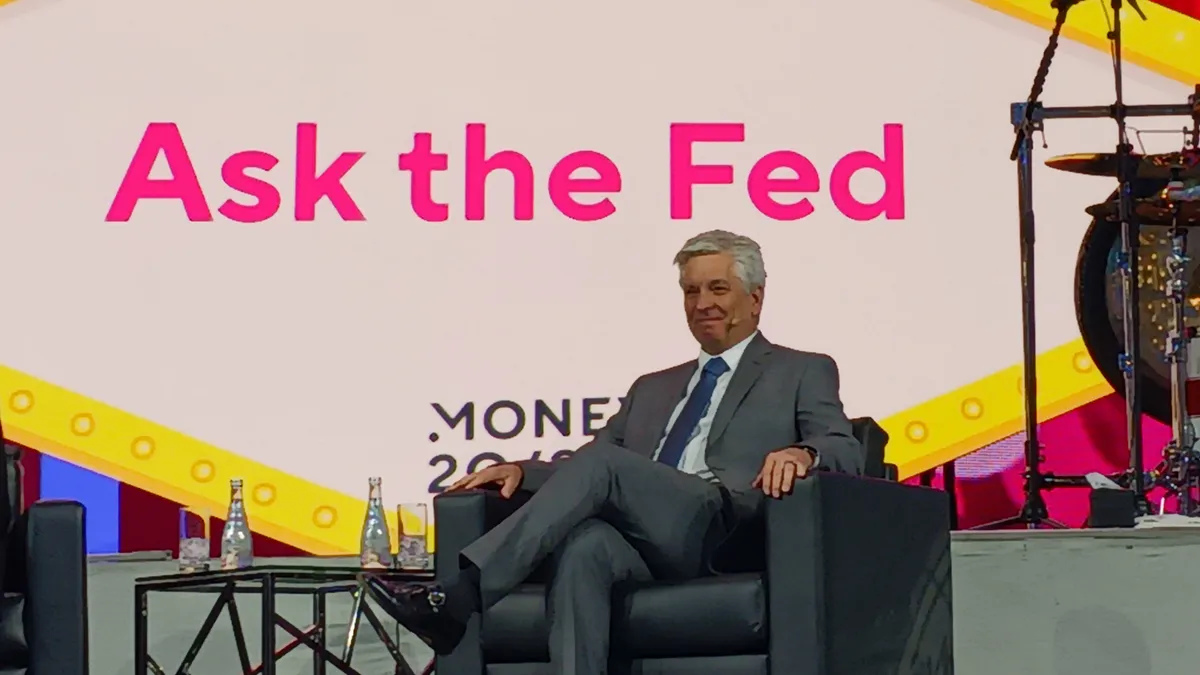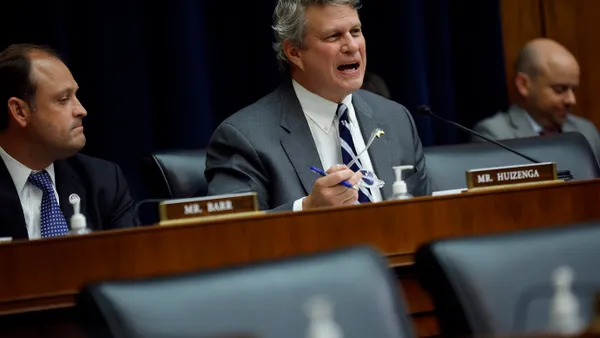Federal Reserve Governor Christopher Waller made a strong case for the U.S. dollar’s dominance as the world’s reserve currency in a speech this month in the Bahamas.
He unpacked a load of facts underscoring how widely used the dollar has been in recent decades for all sorts of purposes, and how those statistics have been little changed in recent years.
As a store of value, the dollar accounted for nearly 60% of global reserves in 2022, easily outpacing the second most held currency, the euro, with a distant 20%, Waller said Feb. 15 at the University of the Bahamas conference focused on “climate, currency and central banking.” As a means of commerce, the dollar was used in three-quarters of export invoicing for all regions, except Europe, and in international banking, dollars were tapped 60% of the time. In addition, many countries use the U.S. dollar even as a domestic payment too, he pointed out.
Waller explained how all of that activity revolving around the U.S. dollar is good for America. It lowers costs for U.S. households, governments and companies; insulates the country’s economy from international shocks; and increases the universe of investors and creditors for U.S. business.
“By standard measures of an international currency’s use, there has not been any notable erosion in the dollar's dominance over the past couple of decades,” Waller said.
Still, Waller reviews threats to the dollar’s leading role that have grabbed headlines recently. Foreign currencies, such as the euro and the Chinese renminbi, are floated as rivals and the threat of geoeconomic fragmentation, in which blocs of countries may unite and isolate, could also be an issue. He also noted digital alternatives and decentralized finance as a challenge. While he easily dispatched with the first two, his counter to the third was less convincing.
In the “shifting payments landscape,” most digital currencies, such as the cryptocurrency bitcoin, ultimately tie back to the dollar too, via stablecoins, the Fed official argued. “So it is likely that any expansion of trading in the DeFi world will simply strengthen the dominant role of the dollar,” he concluded.
What Waller doesn’t mention is that a contingent of U.S. lawmakers has been seeking to thwart any embrace of digital currencies. For instance, a group of U.S. senators this week proposed banning any central bank digital currency. That’s also holding back that worldwide trend, at least in the U.S.
While the Fed has explored the idea of a CBDC, no serious consideration of the prospect has emerged, despite some 64 other countries launching or piloting such a digital currency.
But could it be that the “standard measures” that Waller references may not apply in the future? And that U.S. political efforts to shut out the worldwide trend could isolate the U.S.? It’s impossible to know the futuristic answers to those questions.
Still, there are forces — from a need for increased efficiency in cross-border payments to a demand for more financial inclusion — that are moving the world in the direction of digitization. Despite Waller’s persuasiveness, his speech was tinged with defensiveness, as if he’s trying to convince himself that his statistics will persist.
In his arguments, one can’t help but hear echoes of the hubris spoken by great leaders of long-gone empires. While the dollar’s hegemony in the world may not be faltering today, Waller’s words underscore the reasons for considering that possibility, whether it’s in his lifetime or later.











